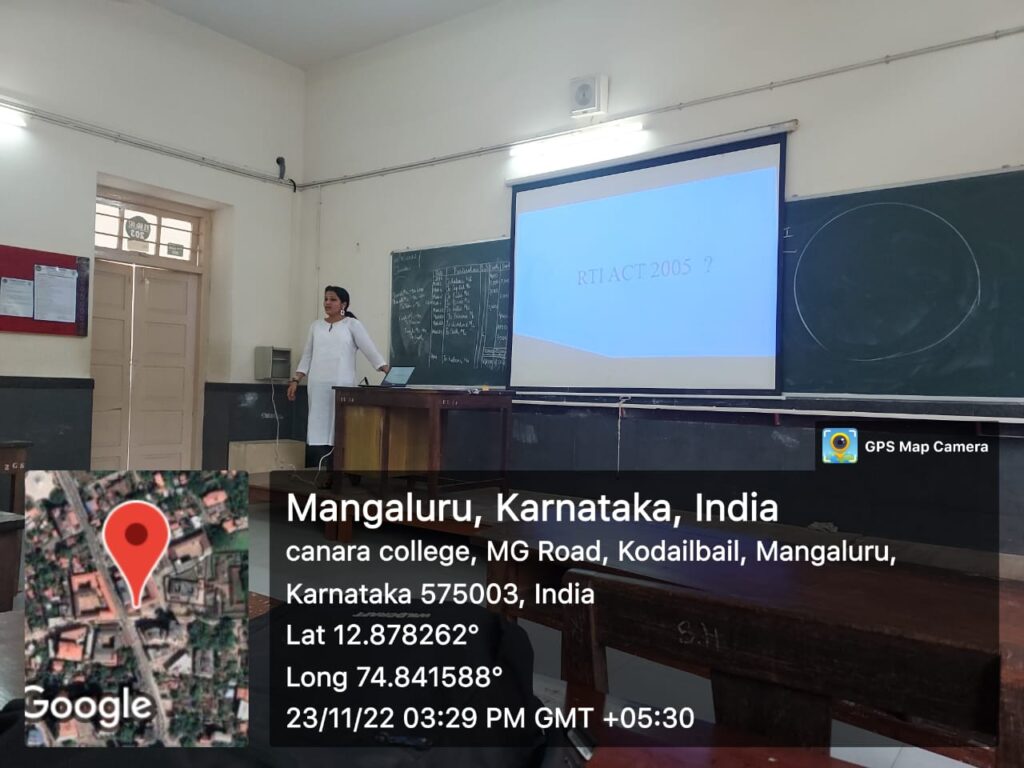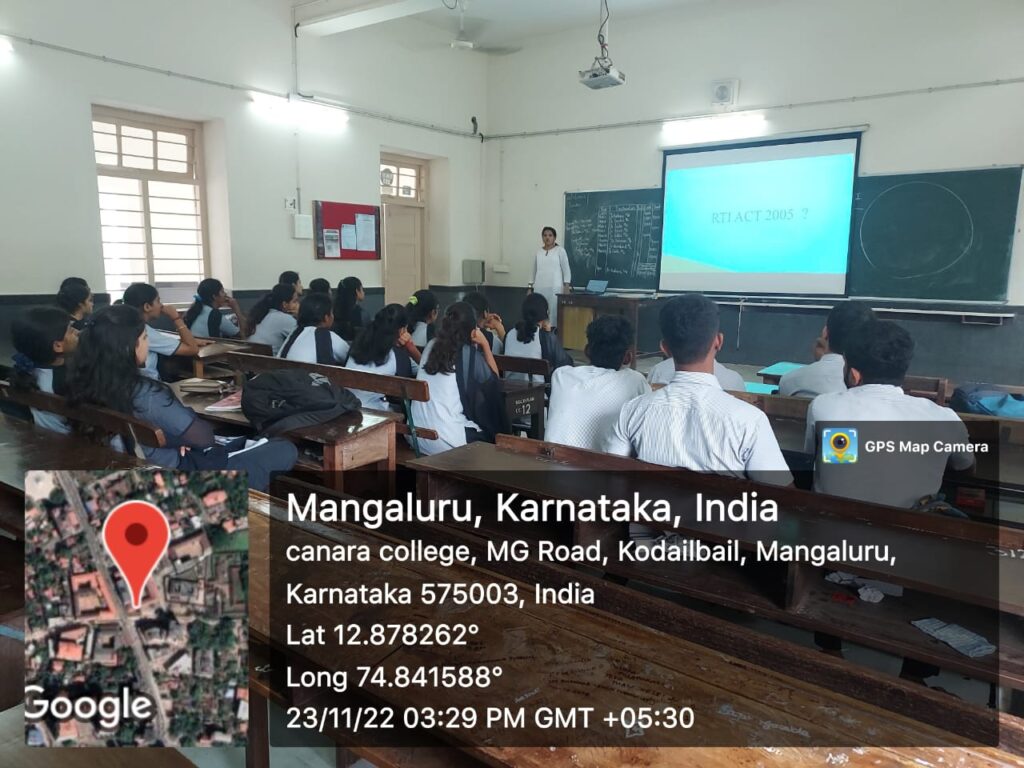A session on “Right to Information Act 2005” for the students of Consumer Forum Association was conducted on November 23, 2022 by Mrs. Asha Kiran, Practicing Advocate of Mangalore Court. The main objective of the session was to understand the conceptual framework of Right to Information Act 2005 and the procedures for filling an RTI complaint. The resource person started the session by addressing the students about the meaning, objectives, features and the importance of Right to Information Act 2005. She explained that RTI Act 2005 aimed to provide legal right to the citizens to obtain information under the control of public authorities, and thereby provide transparency and accountability in governance to the citizens of India. She explained about the various procedures to file an RTI and the time limit to seek information in normal course and if information sought concerns the life or liberty of a person. In her presentation she explained the details of the Act pertaining to the Right of a citizen, what are the types of information one can obtain under this Act, the types of records that can be obtained, the obligations of public authorities, the roles and responsibilities of Public Information Officers (PIO) and Assistant Public Information Officers (APIO), Central and State Information Commissioners, exemptions, the time limit for providing information, rejection of information request, the fees applicable etc.
She cited two cases as examples namely Jiju Lukose vs State of Kerala and CBSE vs Aditya. She explained the roles and responsibilities of Information Officers in the three tiers of the information access regime. At the first level there are the officers who have been designated to receive applications or information requests from people. The second level is the Senior Officers who have been designated to look into those cases where citizens’ requests for information have been denied. At the third level, the independent state Information Commission is set up to look into those cases where citizens are unsatisfied with the decision made at the second level (i.e. the departmental appellate authority). Towards the end of the session, she briefed on the amount of penalty in case if the Public Information Officer commits default in providing information to the public. The session was attended by 25 students.
Report By
Mrs Rashmi






